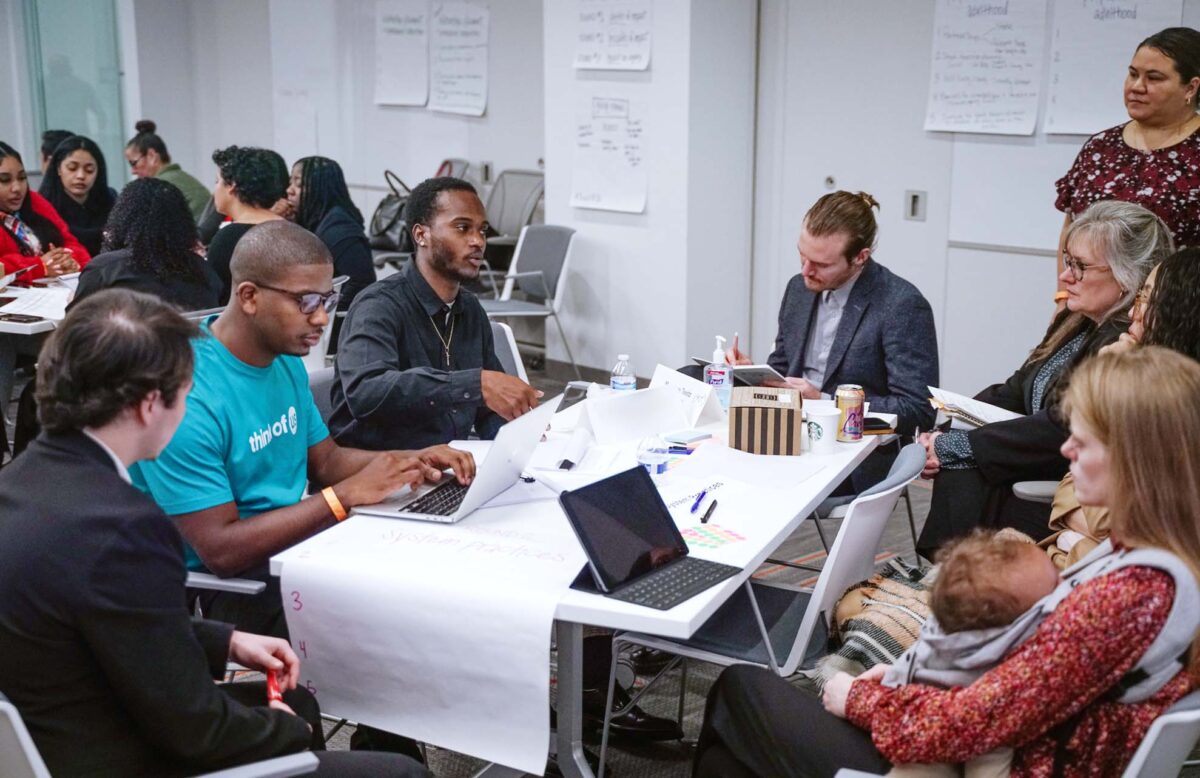Think of Us, a DC-based nonprofit conducting research for the social sector, nabbed a $47.5 million, five-year funding commitment to help develop a better foster care system.
Think of Us nabbed the funding through The Audacious Project, which launched in 2018 and is housed within TED. The funding comes from previous funders of the project (including the Bill & Melinda Gates Foundation and Mackenzie Scott), as well as the Annie E. Casey Foundation, Conrad N. Hilton Foundation, Doris Duke Foundation and Aviv Foundation.
Think of Us will put the $47.5 million toward building a better child welfare infrastructure for youth in the foster system. Over the next few years, the nonprofit will meet with current and former foster youth as well as birth parents and collect data to suss out the largest problems these young people face today — and how to solve them. It will also work with state agencies and policymakers in the hopes of creating federal change; to support all this work, it aims to raise $100 million.
Founder and CEO Sixto Cancel, who spent his entire childhood and young adulthood in and out of the foster system, said that through his work, he’s found a missing element of documenting and understanding the lived experiences of those in the system.
“People can have a lot of great ideas, but it doesn’t make a better system,” Cancel told Technical.ly. “You really have to understand what is truly broken about it and then how are the majority of folks affected by that brokenness — and then, how do you improve that?”
The US spends $33 billion every year on the child welfare system, according to the Congressional Research Service. But only 35% of youth in that apparatus get placed into the care of a trusted adult or family member, and only about 16% of these children and youth are suspected victims of abuse. Cancel said that many instead enter foster care due to neglect, which is closely tied to poverty. In fact, he was placed into foster care as a baby and, due to an incorrect filing that said he had no adults in his life who could take care of him, only found out as an adult that he had no less than four aunts and uncles who were registered foster care providers and could have raised him.
“Most young people actually have a family member or an adult that they know and trust, who already loves them, to be able to live with,” Cancel said. “But it’s very complicated to go live with someone without them being licensed as a foster parent.”
He sees a solution in tech and hopes this funding can push that forward. Think of Us conducts outreach (often in text messages) to thousands of youth in foster care across the country to learn what’s currently not working in child welfare. During the pandemic, for example, that meant finding children who missed out on getting stimulus checks. From there, the nonprofit creates visualizations to find solutions, often at the policy level. Think of Us currently has 40,000 people with lived experience in the foster system in its database.
“It’s about visualizing data that comes directly from those who are impacted and then putting it into a process by which people can identify what’s broken and what are the new solutions that need to be created,” Cancel said.
With these funds, the nonprofit will do more outreach and collect more data, as well as expand its direct services arm to get resources into the hands of foster youth. But Cancel isn’t quite sure how the funds will be spent after that; he wants to determine the biggest issues before assigning funding to any one area.
One thing he would like to see, though, is an update to the child welfare system’s technology, which he said was developed in the ’80s and ’90s and hasn’t been updated since.
“Child welfare was very restrictive and hesitant in putting technology in young people’s hands, and now we’re living in a time where they’re willing to go ahead and be able to put technology in young people’s hands, put technology in foster parents’ hands,” Cancel said. “It’s like the age of technology is coming to child welfare.”
Join our growing Slack community
Join 5,000 tech professionals and entrepreneurs in our community Slack today!
Donate to the Journalism Fund
Your support powers our independent journalism. Unlike most business-media outlets, we don’t have a paywall. Instead, we count on your personal and organizational contributions.

Mayor Bowser: Tech can help DC build a stronger, more self-sufficient economy

Comcast introduces ultra-low lag Xfinity internet that boosts experiences with Meta, NVIDIA and Valve

Maryland firms score $5M to manufacture everything from soup to nanofiber


